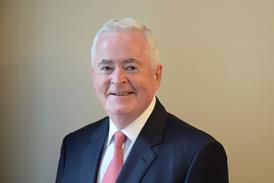A persistent lackadaisical approach to the quality and competence of fire inspections is putting residents’ lives at risk.

For residential asset owners, adopting a cursory approach carries an unnecessary legal and financial risk, which could be easily avoided.
The current shortage of qualified EWS1 inspectors is perhaps the single greatest issue hindering the delivery of highest-standard fire safety consultancy and provision of appropriate solutions.
It is affecting the speed at which fire safety inspections can be carried out. To highlight the extent of the problem, in 2020, there were fewer than 300 qualified chartered fire engineers who could carry out an EWS1 survey , with only 50 new external-wall fire safety inspectors appointed in November 2021.
Until these numbers increase, lives are at risk due to a shortfall in technical knowledge, leaving the door open to incorrect specification or, worse, value engineering.
According to the Association of Residential Managing Agents (ARMA), 73% of blocks over 18m and 96% of those below this height still have no EWS1 certificates. Without action, the situation is likely to get worse.

However, digital technology is now stepping up to the plate, providing solutions that make safety inspection processes easier to manage. Downloadable software and apps provide a way for teams to easily communicate, conducting inspections in real time, remotely or on site. These systems are particularly useful when submitting evidence for planning gateway one applications.
Ultimately, successful tech will support and assist on a day to day basis, improving the speed and accuracy of work for greater levels of quality control and safety as a whole.
With news of fire safety failures occurring almost weekly, digital tools should be seen as an essential investment for asset owners looking to improve standards across the board. Digitisation is now fundamental in the safety inspection process, and with greater awareness of its potential, we will start to see the best practice needed to make meaningful, positive change.
Ibrahim Imam is co-chief executive and co-founder of software company PlanRadar






























No comments yet